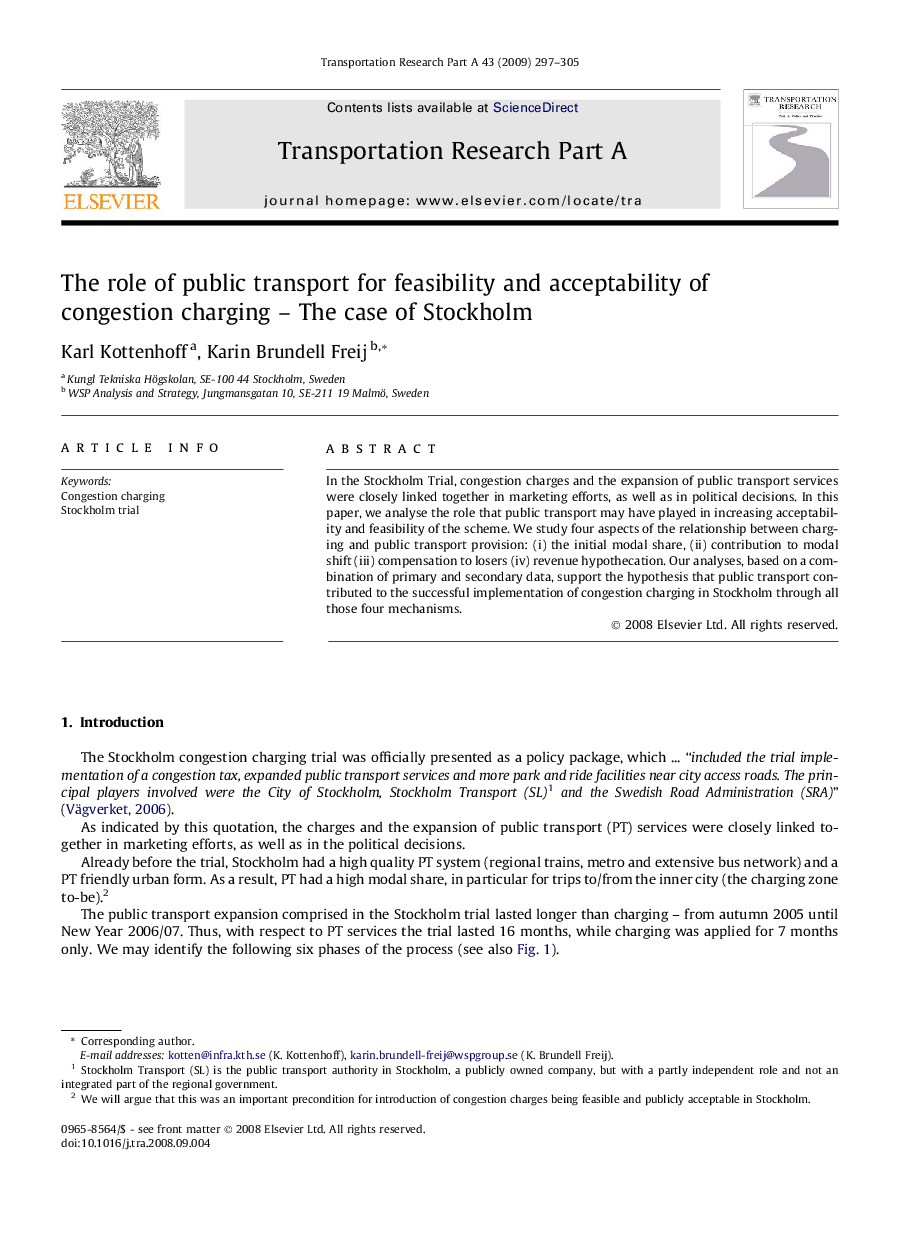| Article ID | Journal | Published Year | Pages | File Type |
|---|---|---|---|---|
| 311387 | Transportation Research Part A: Policy and Practice | 2009 | 9 Pages |
Abstract
In the Stockholm Trial, congestion charges and the expansion of public transport services were closely linked together in marketing efforts, as well as in political decisions. In this paper, we analyse the role that public transport may have played in increasing acceptability and feasibility of the scheme. We study four aspects of the relationship between charging and public transport provision: (i) the initial modal share, (ii) contribution to modal shift (iii) compensation to losers (iv) revenue hypothecation. Our analyses, based on a combination of primary and secondary data, support the hypothesis that public transport contributed to the successful implementation of congestion charging in Stockholm through all those four mechanisms.
Keywords
Related Topics
Physical Sciences and Engineering
Engineering
Civil and Structural Engineering
Authors
Karl Kottenhoff, Karin Brundell Freij,
